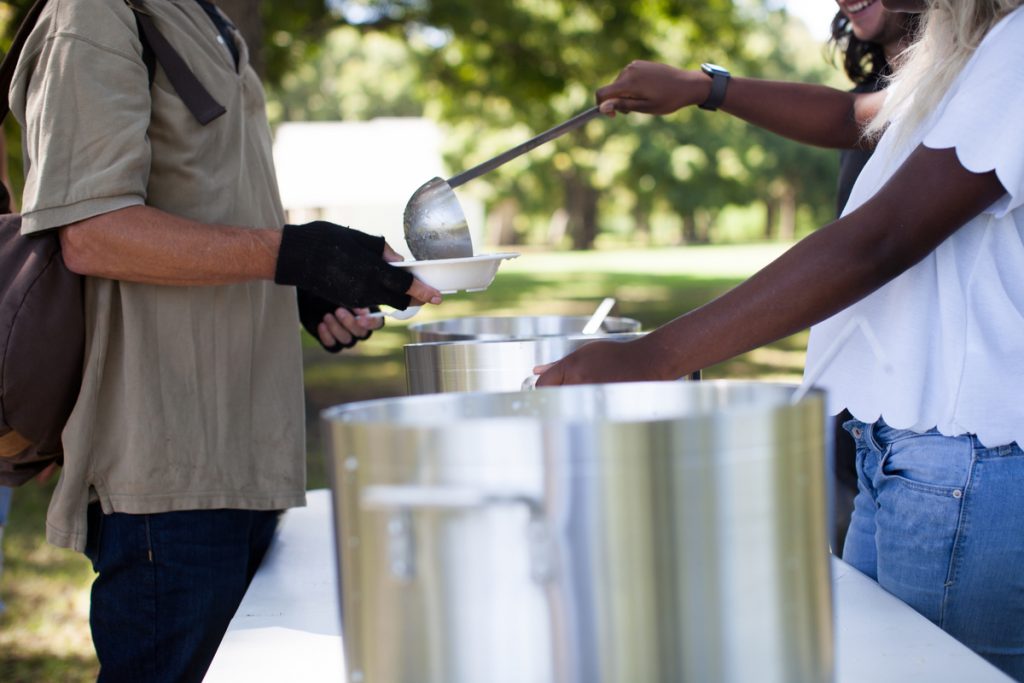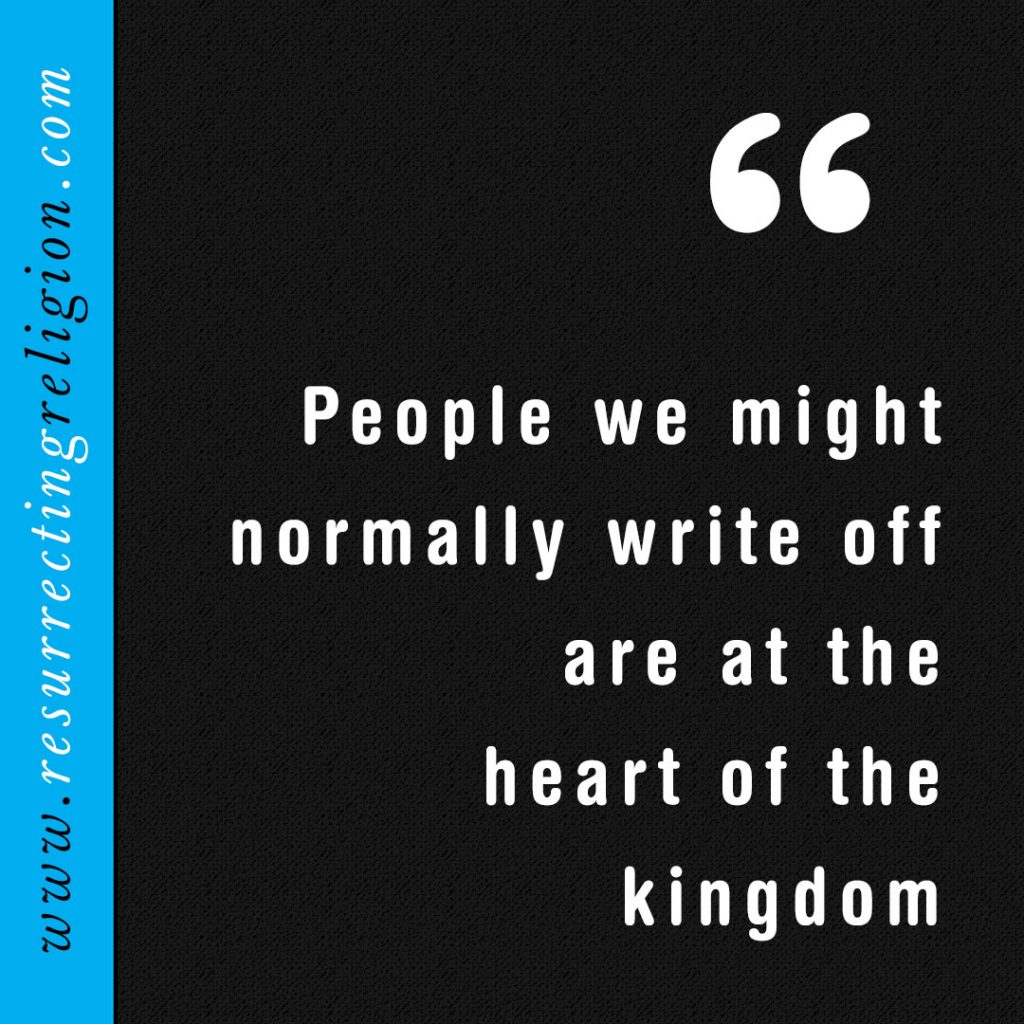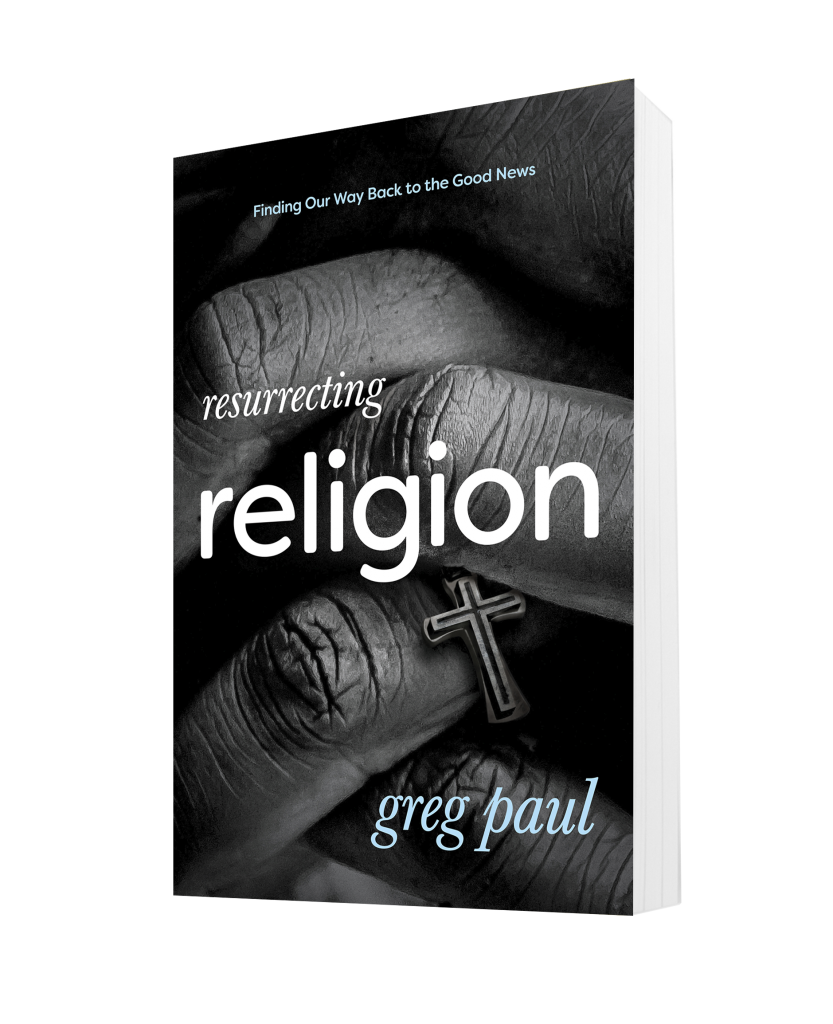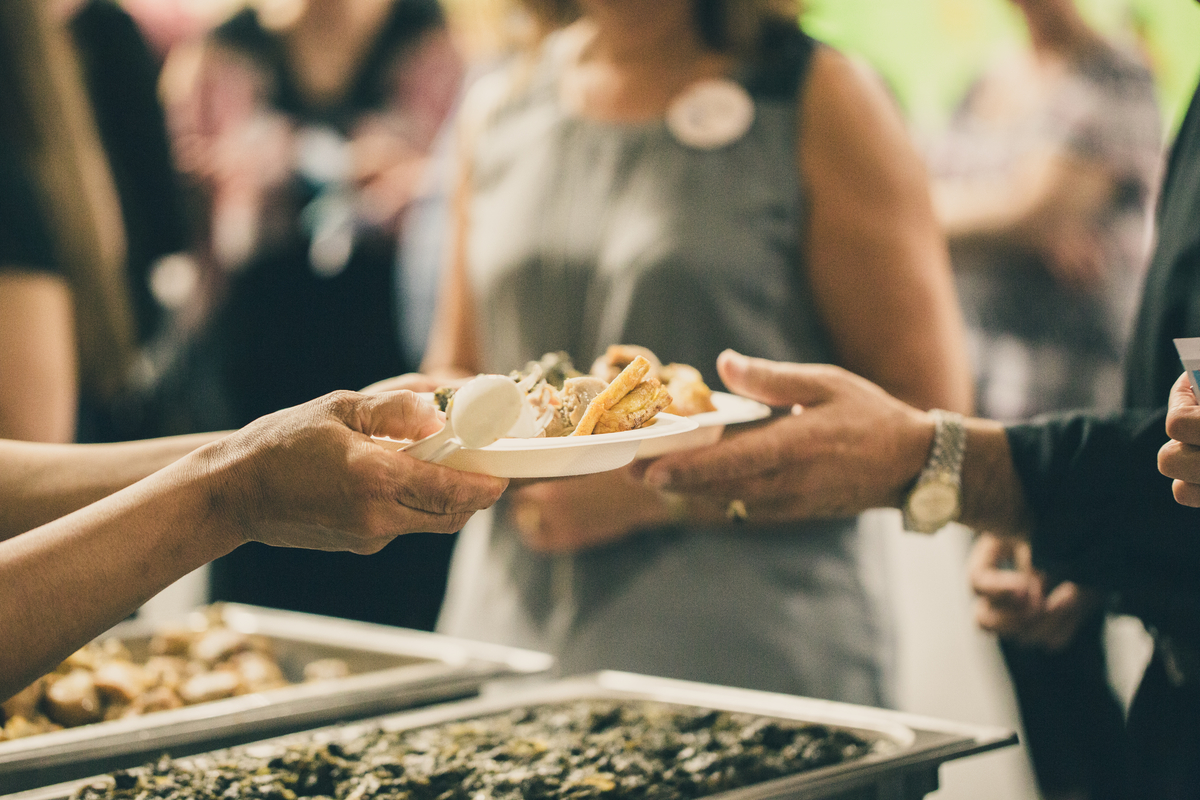In the early days of Sanctuary church we wondered “how do we enact the Kingdom agenda of Jesus in real-time, practical situations?” If people who are poor and usually excluded are truly supposed to be at the center of all, what are the middle-class white folks like us supposed to do about it?
The situation in our community was and is not like that in many very poor countries, where a $300 microloan will buy a sewing machine that can provide income and the beginnings of a business to support an entire family. Money, while important, was often the least pressing of the needs of our people, who struggled with post-traumatic and psychiatric conditions, addictions, and much more. Men and women who were usually not able to care well for themselves were not going to be able to care well for one another, were they?
Just take community meals. Who would plan the menu, do the shopping, cook the food and serve it, clean up afterward? It was a challenge, for sure, but slowly we began to realize that what we thought of as “serving” was often a matter of retaining power and control for ourselves—our competent, efficient selves. In a soup line, after all, who is it has the most power: The one shuffling along with a bowl on a tray, or the one holding the ladle?

We could see the essential indignity of it. Despite our constant assurances that there was more than enough food for all, people began to line up half an hour before the food was served. Many would take their food to a table, bolt it down, and hurry back into line. They spent more time standing like cattle in a pen than they did eating. If submission to God meant, for those of us who were rich by contrast to others in the community, releasing our power and control so that “the poor” could assume their rightful place, how were we actually supposed to do that?
A soup line was not how we had begun. Originally, I had begun to invite the odd individual or small group of people I met on the street to come back to Sanctuary, where there was an old-school church kitchen we could use to make some lunch together. Grilled cheese and soup one time, spaghetti the next. Then grilled cheese and soup again. Simple. We’d sit and eat it at the old wooden table with the retro Formica top. We had zero culinary range, but the food filled the hole, and it was nice to sit there together. Things got more complicated as more and more people showed up. Ultimately, we devolved to the more efficient soup line format, with a few competent and reliable volunteers doing the work. It sucked the soul right out of it.
Still, when it was suggested that we deliver platters of food to the tables and let people serve one another, I objected.
“They’ll never share it evenly,” I said. “The first few people who serve themselves will clean the platter off, and there’ll be nothing left for the others at the table.” I could foresee fights breaking out.

The day we first tried the new approach, we made, I was sure, another tactical error: We served roast beef, a rarity in church basement drop-in or mission meals because of the cost. We had agreed that us organizers, once the food was delivered to the tables, would sit down and eat alongside the rest of the diners.
When I was finished hustling around, I plopped myself down in a seat at the end of one of the long tables, eight diners to each. I served myself some mashed potatoes and mixed vegetables—there wasn’t a lot left, but enough—then sat waiting for the meat platter to make its way to me. When it arrived, it held the serving tongs and one miserable scrap of beef about the size of my thumb.
Ha! I thought. I knew it! This will never work.
I was still rehearsing my arguments with grim self-satisfaction when I heard a kind of grunting coming from the opposite end of the table. Looking up, I met a pair of eyes lasering their way through a thicket of hair and above a tangle of beard. I didn’t know who the man was, and I don’t know that I ever met him again. He had a massive slab of beef on his fork, and it was dripping gravy all over the table as he waved it in my direction. He grunted again and gave the beef an extra little jiggle. It was clear what he meant. He’d checked up and down the length of the table and seen that I gotten shortchanged.
Oh, I thought. Oh. This will work after all.
The kitchen is the heart of any home, and at Sanctuary it’s no different. It makes sense, then, that the endeavor to enact the Kingdom characteristic of submitting the needs of the wealthy—who are so adept at getting and keeping what they want—to those of the ones who are usually denied and marginalized, would begin there. But this is a quiet, patient revolution; it has continued and will continue to work its way through our community, for there are many miles to go before we will arrive at our destination.
For those whose voices are usually the loudest and most authoritative, being slow to speak and truly listening to those who are usually ignored or dismissed is another characteristic of the submission to which our Lord calls us. This submission means continuing to love when love is hard or even when love is not reciprocated. It will mean letting go of judgment—our tendency to want to discern the difference between the wheat and the weeds, who’s in and who’s out.
This, too, is a path to joy, although it may even mean that we sometimes end up suffering a measure of persecution, either from people whose own traumas prompt them to harm others, or, because we have aligned ourselves with them, from the powers with which we used to align ourselves. What we trust, ultimately, is that there will be healing for all.
A few years after the Roast Beef Revelation, Donald became our kitchen facilitator. Donald was living in a men’s shelter when he first came to Sanctuary, dragged along by a small posse of dedicated boozers who could see that the big man needed somewhere to belong. Having our people serve one another the meal had led quickly to having them cook it, and Donald found his way into the kitchen in no time at all.

That’s about when we began to talk about “core” members of the community: the Beatitudes people who God intends to be right at the center and “anchor” members—the privileged and (usually) more stable people whose proper role was a more peripheral supporting one. We began to see that we needed to protect, wherever possible, the actual work being done at Sanctuary from middle-class volunteers, as their participation in this way tended to supplant the involvement of our core people, who were used to being shoved out and told their efforts were unnecessary, unwelcome, inadequate.
By the time Donald became a member of our staff, he was both core and anchor in our community. He calls himself a facilitator rather than a manager because, he says, having found his way to the center himself, his real job now is to make sure that others on the margins get involved. Don’s crew of mostly street-involved people now cooks and serves about twenty-five thousand meals each year to their street-involved friends and a handful of more privileged people for whom Sanctuary is also home.

We still have a lot of “wealthy” visitors to the community. Some come because they’ve heard about Sanctuary somewhere and want to see it in action. Others are seminary or social-work students, or, increasingly, younger adults who want to follow Jesus in the real world. Routinely, Jay brings others like Michael Bryant—wealthy, powerful, influential people from the high-pressure worlds of business or government. Some arrive more than a little nervous, like the former Supreme Court judge who whispered to Michael, “Were you afraid when you first came here?” The people who welcome them and make them feel at home are people such as Carlo, Angela, Matt, or Traci: street-involved members of the community who have come to “own” the place. They can and do, often without knowing it, articulate beautifully to these visitors what the Kingdom looks like and how they’ve experienced it for themselves.
The people who used to be shoved out have found a home, a place within a large, very dysfunctional family. They’re claiming their inheritance, generously welcoming others, even the rich and powerful. And some of those people find a home with us, too.
You’ve been reading with Greg Paul from Resurrecting Religion: Finding Our Way Back to the Good News. Learn more about Greg and his church at resurrectingreligion.com.
“With raw vulnerability and buckets full of hope, Greg Paul will restore your faith in the church.” – Steve Wiens, Pastor and Author. See more praise for Resurrecting Religion here.

